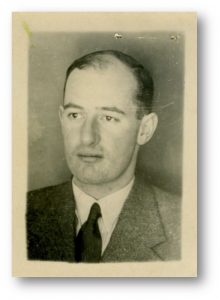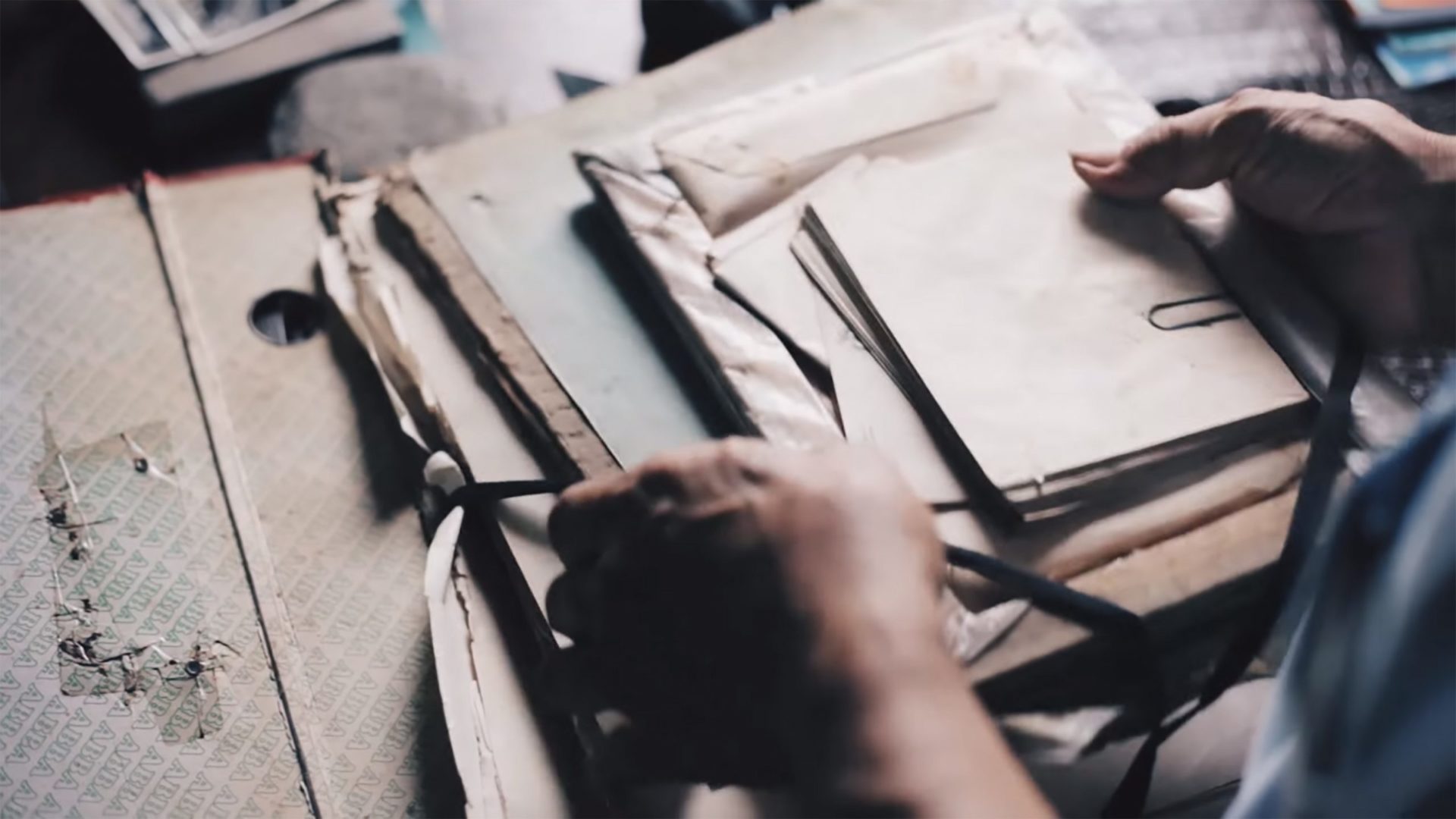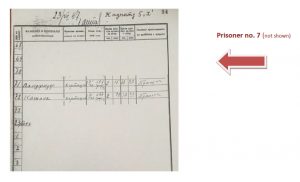24.09.2019
Sweden’s continued diplomatic failure
In spite of clear evidence that Russian officials continue to withhold crucial information about Raoul Wallenberg’s fate, Swedish officials are not demanding answers from the Russian authorities. I want to know why.

This past August 27, in honor of Raoul Wallenberg Day, the Swedish government announced the release of 40,000 new documents that are contained in its official Raoul Wallenberg case-file. The announcement failed to mention that the release did not occur on the government’s own initiative. Instead, the declassification of a shelf-meter of documents came in response to a formal research request I and two experts filed back in March 2018. The request is part of a new research project that aims to establish a more complete background of the Raoul Wallenberg case in Sweden and also in Russia. This will allow researchers to present even more precise and targeted questions that the authorities in both countries have to answer before they close the Wallenberg inquiry for good.
The release of the additional documentation is certainly most welcome and hopefully will provide important new insights into the official handling of my uncle’s disappearance in the Soviet Union in 1945.
In a public statement accompanying the release, the Swedish Foreign Minister Margot Wallström emphasized that “it is important to keep Raoul Wallenberg’s memory alive.” (Det är vikitgt att hålla i liv Raoul Wallenbergs minne). However, she stopped short of saying that the Swedish government would continue to actively try to solve Wallenberg’s disappearance. Instead, Ms. Wallström simply indicated that the Swedish government would “continue to support efforts to try clarify Raoul Wallenberg’s fate.” (Regeringen kommer att fortsätta att stödja arbetet me att försöka få klarhet I Raoul Wallenbergs öde.)
The Foreign Minister makes an important distinction, and in this careful choice of words lies the problem: The fact is that, with few exceptions, for twenty years the Swedish authorities have done very little to help advance the efforts of those who truly wish to clarify what exactly happened to my uncle after the spring of 1947, when his trail breaks off in the Internal (Lubyanka) Prison in Moscow in the spring of 1947.
Since the end of the official investigation conducted by the bilateral Swedish-Russian Working Group in 2000, the Swedish government has quietly transferred the burden of solving the case to private citizens – to Raoul Wallenberg’s immediate family and to researchers. Swedish officials have insisted on this approach even when it is very evident that without determined official support, it constitutes a nearly impossible task.
For me and my family, determining the full truth about his Raoul Wallenberg’s fate is a sacred duty – and for more than twenty years now, we once again have been left to carry it more or less on our own shoulders. As a result, we find ourselves at a serious impasse. The current situation seems even more frustrating because it could have been easily avoided: It is clear that Russia possesses highly relevant information in the Wallenberg case, yet the Swedish government will not push Russian authorities to provide the access needed to conduct an independent review of the documentation. We have provided Swedish officials with a growing list of key materials. If access to these papers were granted, the question of Raoul’s fate could almost certainly be solved; or at least crucial progress could be made. In many cases, we can pinpoint the exact archival collection or even the precise file and document that should be examined. Yet, Swedish authorities remain unwilling to push the Russian government to release the material. So, we are left to try to obtain the access we need in other ways. Meanwhile, the Swedish government publicly declares that it supports our current efforts in Russia. In reality, it does not.
When in November 2009, information emerged from the archives of the Russian State Security Service (FSB) that an unidentified Prisoner no. 7 was held in Lubyanka Prison in July 1947, there was real hope that this could proveto be the first step towards a full resolution of the case. Based on strong circumstantial evidence, the FSB archivists at the time concluded that the prisoner was, with great likelihood, the Swedish diplomat Raoul Wallenberg. If so, it means Raoul was alive six days after his official date of death of July 17, 1947. Prisoner no. 7 was interrogated on July 22, 1947, together with Raoul’s longterm cellmate, the German diplomat Willy Rödel. The next day, Prisoner no. 7 was interrogated for more than 16 hours together with the Hungarian citizen Vilmos Langfelder, Raoul’s driver and assistant in Budapest.
With the exception of Tomas Bertelman,the Swedish Ambassador in Moscow in 2009 – who called the new information “almost sensational” and who wrote two letters asking Russian authorities for clarification and additional details – Swedish officials did little to pursue the new leads. In November 2009, and again in early 2010 – just a few weeks after Swedish authorities officially learned of Prisoner no. 7 – Sweden’s Prime Minister Fredrik Reinfeldt and Foreign Minister Carl Bildt (at the time) met with (then) Russian President Medvedev and the (then) Prime Minister Vladimir Putin – Yet, they failed to take up the new findings in their formal discussions. They simply chose to remind their Russian counterparts to ensure that experts be granted adequate access to key archival collections. When this access did not happen, Swedish officials shrugged their shoulders and said there was nothing they could do.
The centenary (100th anniversary) of Raoul Wallenberg’s birth in 2012 offered another golden opportunity to focus international attention on the urgent need to press Russian authorities to provide clarity about Prisoner no. 7. In January 2012, in response to repeated appeals from researchers and our family, Swedish Foreign Minister Bildt appointed the former Chairman of the Swedish Working Group, Ambassador Hans Magnusson, to conduct a new formal review of the Raoul Wallenberg case. Even though Mr. Magnusson acted in official capacity, as an appointee of the Swedish government, the FSB archivists refused to permit him to review documentation concerning Prisoner no. 7 and related issues. Again, the Swedish government did nothing to protest this serious snub by Russian officials.
The failure of Swedish diplomats to help us effectively pursue one of the most important leads to emerge in the Wallenberg case since 1957 is truly disappointing. There exists broad consensus among researchers and other experts that even if Prisoner no. 7 was not Raoul Wallenberg, obtaining all available information about this individual would be of vital interest for the Wallenberg investigation.
Ten years after the information first emerged, the issue of Prisoner no. 7 remains unsolved. The lack of official Swedish support to break through the Russian stonewalling led to my reluctant decision to sue the FSB in 2017. The litigation is currently pending.
There exists now growing evidence of a disturbing pattern of intentional obstruction, including strong indication that Russian officials have engaged in an intentional campaign of disinformation during the 1990s and 2000s, to influence the Wallenberg investigation. I have come to Stockholm again this week, to present the Swedish Ministry of Foreign Affairs with a list of precise questions and research requests concerning specific documentation we seek in Russian archives. I also intend to discuss a set of carefully selected questions concerning the background of the Wallenberg case in Sweden. We, Raoul’s family, will not rest until we know what happened to him. The Swedish authorities who regularly invoke his name, who praise his courage and hold up his self-less actions in support of his fellow human beings 75 years ago as an example for the next generation to emulate, owe Raoul Wallenberg more than words. They owe him to stand up and do what is necessary to end the nightmare that has engulfed him and his whole family for far too long.
Marie von Dardel Dupuy is the daughter of Professor Guy von Dardel, Raoul Wallenberg’s brother.
Contact: info@fritz-bauer-blog.de
Fotos: fig. 1, Raoul Wallenberg; fig. 2: document: Heavily censored page from the Lubyanka Interrogation Register for July 23, 1947, showing a 16 1/2 hour interrogation of Vilmos Langfelder, Raoul Wallenbergs’s Hungarian driver and Sandor Katona, Langfelder’s cellmate. FSB archivists claim that a “Prrisoner no. 7”, who was interrogated with them, was “in great likelihood” Raoul Wallenberg. Source: The FSB Central Archive.
Website: rwi-70.de







